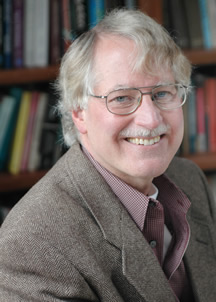Skip Navigation

Search

Ken A. Dill
Distinguished Professor
Laufer Family Endowed Chair of Physical and Quantitative Biology
1978 Ph.D. Biology Department, UCSD, La Jolla
1981 Postdoctoral Fellow, Chemistry, Stanford Univ.
Phone: (631) 632-5400
Email: Ken.Dill@stonybrook.edu, dill@laufercenter.org
